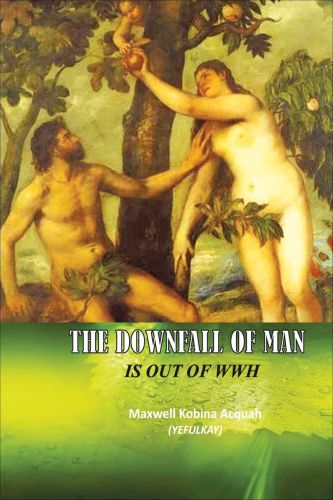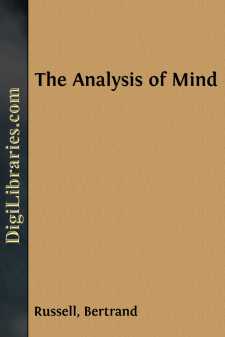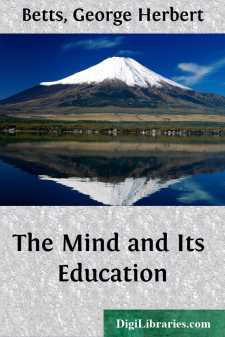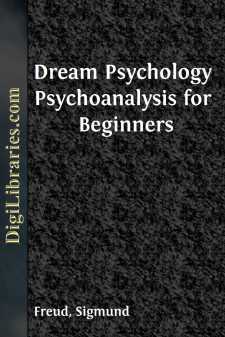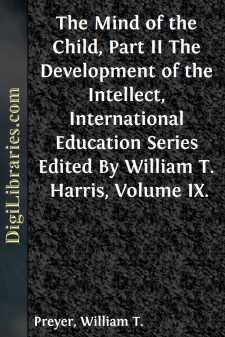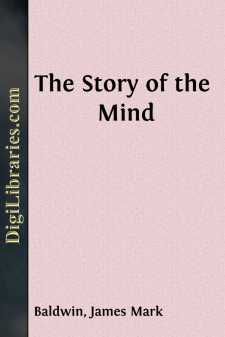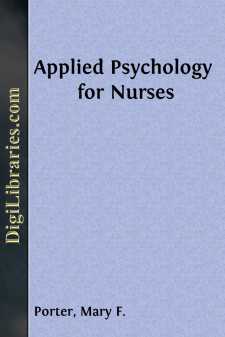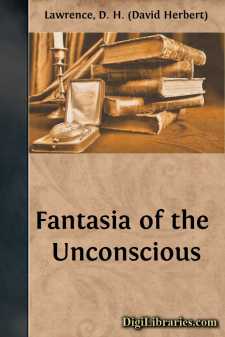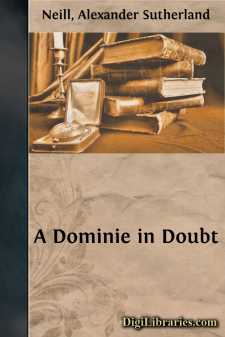Psychology
General Books
Sort by:
CHAPTER IINTRODUCTION Science. Before attempting to define psychology, it will be helpful to make some inquiry into the nature of science in general. Science is knowledge; it is what we know. But mere knowledge is not science. For a bit of knowledge to become a part of science, its relation to other bits of knowledge must be found. In botany, for example, bits of knowledge about plants do not make a...
more...
by:
Maxwell Acquah
THE DOWNFALL OF MAN - IS OUT OF WWH Every problem or challenges in life can be traced to principles found in the Bible. Every person, regardless of culture, family or ethnic background, religion, education, complexion, country of origin, position or social status, must either follow these principles or experience the consequences of violating them. Man is affected by what I called ‘‘the WWH...
more...
by:
Bertrand Russell
MUIRHEAD LIBRARY OF PHILOSOPHY An admirable statement of the aims of the Library of Philosophy was provided by the first editor, the late Professor J. H. Muirhead, in his description of the original programme printed in Erdmann's History of Philosophy under the date 1890. This was slightly modified in subsequent volumes to take the form of the following statement: "The Muirhead Library of...
more...
THE MIND AND ITS EDUCATION THE MIND, OR CONSCIOUSNESS We are to study the mind and its education; but how? It is easy to understand how we may investigate the great world of material things about us; for we can see it, touch it, weigh it, or measure it. But how are we to discover the nature of the mind, or come to know the processes by which consciousness works? For mind is intangible; we cannot see...
more...
by:
Sigmund Freud
INTRODUCTION The medical profession is justly conservative. Human life should not be considered as the proper material for wild experiments. Conservatism, however, is too often a welcome excuse for lazy minds, loath to adapt themselves to fast changing conditions. Remember the scornful reception which first was accorded to Freud's discoveries in the domain of the unconscious. When after years of...
more...
SENSES. Sight.—Light.—Five minutes after birth, slight sensibility to light (2). Second day, sensitiveness to light of candle (3). Sixth and seventh days, pleasure in moderately bright daylight (3, 4). Ninth and tenth days, sensitiveness greater at waking than soon afterward (3). Sleeping babes close the eyes more tightly when light falls on the eyes (4). Eleventh day, pleasure in light of candle...
more...
PREFACE. In this little book I have endeavoured to maintain the simplicity which is the ideal of this series. It is more difficult, however, to be simple in a topic which, even in its illustrations, demands of the reader more or less facility in the exploration of his own mind. I am persuaded that the attempt to make the matter of psychology more elementary than is here done, would only result in...
more...
by:
Mary F. Porter
CHAPTER IWHAT IS PSYCHOLOGY? Wise men study the sciences which deal with the origins and development of animal life, with the structure of the cells, with the effect of various diseases upon the tissues and fluids of the body; they study the causes of the reactions of the body cells to disease germs, and search for the origin and means of extermination of these enemies to health. They study the laws of...
more...
FORWARD The present book is a continuation from "Psychoanalysis and the Unconscious." The generality of readers had better just leave it alone. The generality of critics likewise. I really don't want to convince anybody. It is quite in opposition to my whole nature. I don't intend my books for the generality of readers. I count it a mistake of our mistaken democracy, that every man...
more...
A DOMINIE IN DOUBT I. "Just give me your candid opinion of A Dominie's Log; I'd like to hear it." Macdonald looked up from digging into the bowl of his pipe with a dilapidated penknife. He is now head-master of Tarbonny Public School, a school I know well, for I taught in it for two years as an ex-pupil teacher. Six days ago he wrote asking me to come and spend a holiday with him, so...
more...



